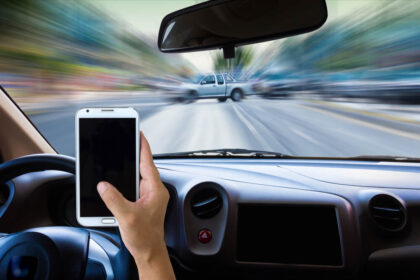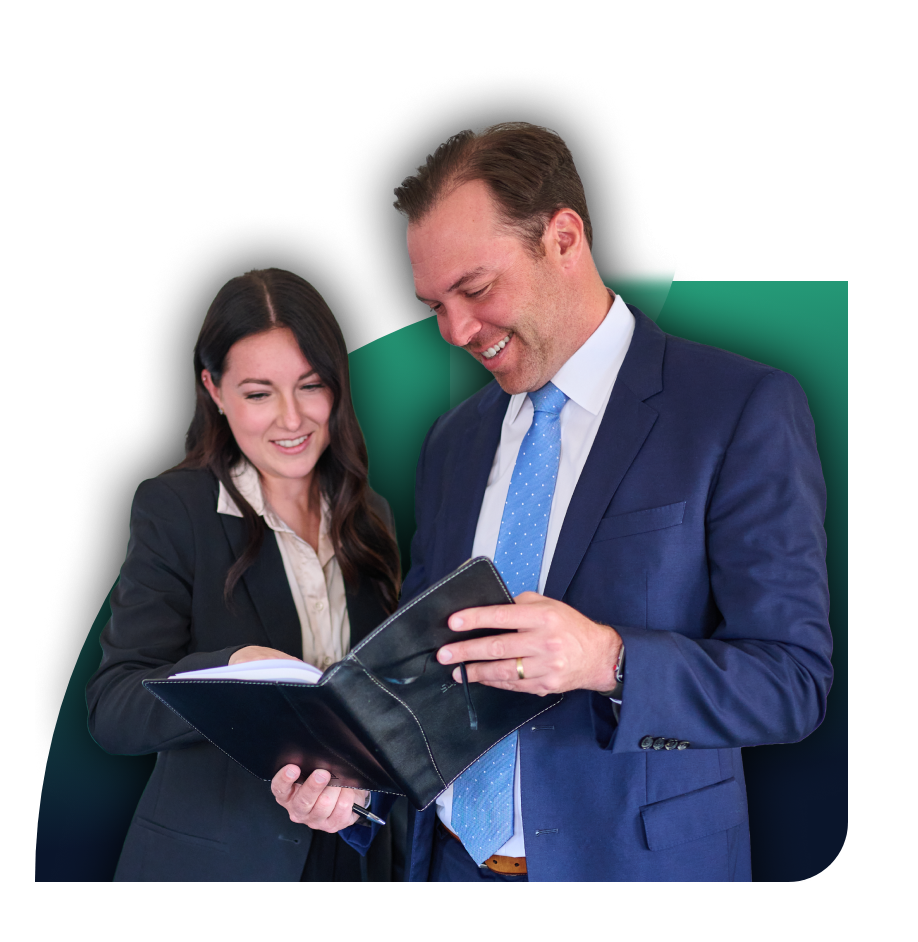Rarely a week goes by without you seeing a story in the news that tells you that self-driving cars are the future. Yet, the future seems a long way off, especially when you also see news reports of people suffering serious injuries or dying in accidents with self-driving cars.
St. Louis drivers make many errors and misjudgments on the road, and you likely regularly see drivers texting, speeding, or driving while impaired. While self-driving technology aims to reduce crashes due to driver error, other issues can arise that lead to serious crashes and injuries. When this happens to you, what are your rights?
Just because there was no actual driver involved in your accident does not mean you come away empty-handed when you have suffered an injury in accidents with these vehicles. There are still ways for you to get financial compensation for your injuries. First, contact an experienced car accident lawyer to explore your legal options.
The Car Itself Cannot Always to Blame for the Accident
Even cars with partially-assisted automated driving mechanisms have been in numerous crashes. Many cars have features that enable full self-driving of the car in traffic. Some drivers may rely on these systems to not do their job behind the wheel. After an accident with one of these vehicles, “The car made me do it” is not a valid excuse to get you out of legal liability for the crash. The driver will likely share some blame (or shoulder it all) when relying on driver-assist technologies.
Self-Driving Cars Are Not Always What You Think They Are
Note that there is a difference between a self-driving car and one with autopilot. The truth is that the term “Self-driving car” does not fit one definition (Some taxi and ridesharing services are now using these fully self-driving cars).
Self-driving cars can mean that there is no driver whatsoever. The term can also refer to an expensive add-on to a car (such as a Tesla) that takes over the vehicle’s operation when the driver is present. Regardless of the level of assistance, these cars are becoming more prevalent on the roadway. Some even predict the obsolescence of the human driver within decades.
Self-Driving Cars Are Far from Completely Safe
All told, the National Highways Transportation and Safety Administration documents roughly 400 accidents involving self-driving vehicles. Five people have died in these crashes, while six have suffered severe injuries. This data spanned just ten months, meaning there have been far more accidents since introducing this technology. Some studies have even shown that self-driving cars have a higher accident rate than those driven by actual people.
A recent Tesla recall underscored the dangers posed by self-driving cars. The company recalled over 360,000 vehicles to make repairs to the self-driving car system. Faulty software was the cause of several crashes prior to the recall. One of the significant problems with the vehicle is that the software allowed it to roll through stop signs.
Serious Car Accidents Involving Self-Driving Cars

In one case, a California family alleges that a faulty autopilot system was responsible for the crash that led to the death of a woman and severe injuries to her husband in a car accident.
In this case, the woman in a Tesla had a self-driving mechanism. The car plowed into the back of a fire truck already on the scene of a previous accident. The lawsuit complaint alleged that Tesla had marketed its cars to lead people to expect that the self-driving system can do far more than its real capability and is more of a driver-assist system.
There are three possible ways that you can suffer injuries in an accident involving a self-driving car:
- You can be in a car that claims to have “self-driving” features
- You can be a passenger in a self-driving car (such as one owned by a local taxi service)
- You can be another driver (or passenger) who was in an accident with a self-driving car
Self-Driving Cars Can Act Unpredictably
Self-driving car accidents can be even more dangerous because of the lack of predictability involved with a malfunctioning car. Although it is difficult to anticipate any car accident, the actions of a self-driving car before a crash seemingly come out of nowhere.
A self-driving car can suddenly stop or change lanes. Further, these accidents can occur at high speed, leading to more severe injuries.
There Are Similar Liability Rules in Self-Driving Car Accidents
While many play up the dangers of self-driving cars, the fact that there was no driver involved does not upstage the regular rules of liability in a car accident case. You must still show that someone (or something else) is to blame for the crash.
It is still possible for you to be the driver at fault in a self-driving car accident. You must prove that the other car did something responsible for the crash. In other words, the traditional liability rules apply, albeit with a few wrinkles (such as the overlay of product liability law).
The elements of a self-driving car accident are the same as any other crash:
- You must prove that someone else owed you a duty of care
- The person who owed you the duty must have failed to uphold it by acting unreasonably under the circumstances
- You suffered an injury
- Your injuries would not have happened had it not been for someone’s actions
There Are Often Difficult Questions to Address in Self-Driving Car Crashes
In self-driving car accidents, many novel questions can relate to the individual elements of the test, such as:
- Which was the party who owed you the duty of care? (there can be potentially more than one defendant in your case)
- Who was the person or entity who committed the breach of duty?
- Which actions exactly were the breach of duty?
- Were your injuries caused by the person or the technology?
There is still such a thing as an accident with a self-driving car that can involve human-related factors. Accidents can still happen even when the autopilot or self-driving systems are functioning as intended. Some are the fault of the self-driving car, while other drivers can also be to blame for the accident.
It may take some time for legal precedents to apply to self-driving cars. Even if the same general rules of liability apply, a court will need to decide on some issues for the first time.
Many Drivers Hit Self-Driving Cars and Drive Away
Self-driving cars present other challenges. On the flip side of the coin, many human drivers involved in accidents with self-driving vehicles do not stop because they think they can get away without exchanging information. Companies that own driverless taxi services often experience losses because they do not know where to file claims against another driver’s insurance.
Options for Compensation for Self-Driving Car Passengers
In addition, passengers in a self-driving car at the time of the accident can face legal challenges when seeking compensation. First, they will need to establish who was at fault for the accident before they know where to seek financial compensation.
Depending on fault, they can seek compensation from:
- The driver of the other car involved in the accident
- The company that owns the self-driving car that they were in at the time of the accident
- The company that made the self-driving car
Figuring Out the Proper Defendant in a Self-Driving Car Accident
A combination of people or entities may bear some share of responsibility for the accident. If you suffered an injury in one of these accidents, you have a number of legal options available to you. An experienced personal injury attorney can advise you about the most effective way to obtain financial compensation and pursue all possible defendants on your behalf.
Product Defects and Self-Driving Cars
Perhaps the legal option that can lead to the highest possible compensation is filing a product liability lawsuit against the company that made the car or a part that caused the accident. Here, you may pursue a product liability case that alleges a defective car.
Three possible product defects can lead to financial compensation:
- Design defects are when the design is unreasonably dangerous for the product’s intended purpose.
- Manufacturing defects are when there is nothing wrong with the product’s design. Still, something has gone wrong in the manufacturing process, making the product unreasonably dangerous for its intended use.
- Marketing defects are when the manufacturer or seller knew or should have known of danger but failed to recall the product or warn the general public.
Product liability cases are an attractive legal option. When you can sue a company, you can rely on much more insurance coverage than an individual driver will have. In addition, the company should have assets to cover any judgment if they did not have enough insurance coverage to pay for your damages. However, many self-driving car accidents are a driver’s or another party’s fault.
Your Attorney Must Understand an Emerging Area of the Law
The challenge is that you need an attorney who can understand both the specifics of the car accident and the technology behind the self-driving car. Since the self-driving car relies on technology, algorithms, and artificial intelligence, you need an experienced lawyer to pinpoint exactly what happened to cause the accident.
If the self-driving car does something like abruptly slow down for no reason, it is a pretty safe bet that something went wrong with the car. However, determining the cause of the crash can be more complicated when nothing extreme happens.
Self-driving car accidents require more investigation before you can file a claim or lawsuit. The same applies if you were an injured passenger in one of these self-driving cars.
At a minimum, you will need to know whether driver error or a software malfunction caused the accident. Then, your attorney will need to understand the technology the self-driving software uses. It is not always easy to get into the black box to piece together what the car did and what it should have done.
You Need an Attorney for a Self-Driving Car Accident Case
Self-driving cars and extensive auto assist technologies are still in their infancy. The lawsuits and claims that involve these cars and technologies have several complexities. You may need to file a claim against multiple parties, and each insurance company or defendant may argue that someone else injured you. Still, your lawyer will seek to cast as broad a net as possible to get you the most compensation for your car accident injuries.
If you suffered an injury in a self-driving car accident, call for an initial consultation with St. Louis personal injury law firm today. You may face a tough legal challenge, and you need the right car accident lawyer who can take on this type of complex and highly technical case.
Schedule a Free Initial Consultation Today!


